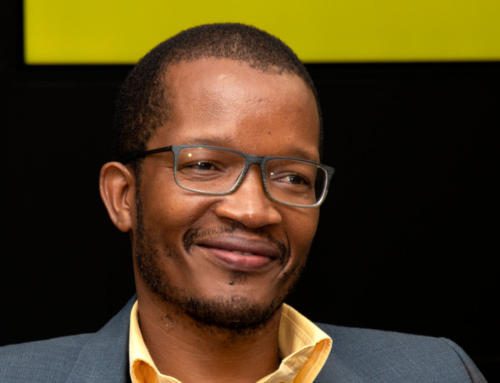Communications regulator Icasa faces its biggest-ever test over the coming six months as it gears up to oversee South Africa’s first-ever auction of broadband telecommunications spectrum.
And signs are looking reasonably good that it’s not going to mess it up – barring any problems from left field, like unwarranted ministerial interference in the process – although it has already missed a promised deadline to get it done this year, pushing it out by three months to March 2021. That’s a relatively minor hiccup, to be fair.
The auction has been a long time coming. Icasa wanted to license the spectrum in 2016, and even issued an invitation to apply (ITA) at the time, but it was taken to court by former communications minister Siyabonga Cwele, whose nose was out of joint by the regulator flexing its independence. Cwele first wanted government to finalise a painfully protracted policy review. In the end, Cwele effectively won, with the matter settled out of court and the ITA withdrawn.
Ironically, the changes to legislation proposed under that policy review have still not seen the light of day and won’t until well after the spectrum auction is done and dusted and operators are well into expanding their 4G networks and deploying 5G at scale across the country.
The first crucial step from Icasa will come at the end of September, when it is expected to issue the final ITA, which will set out how the auction will work, including the reserve price for each lot of spectrum, how the spectrum will be divided up and what will be set aside for government’s wholesale open-access network, or Woan. The Woan, which will be owned by private sector players, is government’s attempt to create more competition in the sector at a services layer and break down the dominance enjoyed by Vodacom and MTN. Will it work? Who knows? I hear there are significant concerns among some Icasa councillors about the feasibility of the Woan, even with Vodacom and MTN agreeing to an “offtake” arrangement, where they buy at least 30% of the capacity of the wholesale operator to prop it up in its formative years.
Auctioneer
After it has issued the final ITA, Icasa then needs to appoint an auctioneer, a highly specialised function that will probably go to a foreign provider, possibly working in conjunction with one or more local law firms. The appointed firm will run the auction on Icasa’s behalf, ensuring the process runs smoothly, is free of cheating and collusion, and has a credible outcome, among other objectives.
Icasa also needs to decide what it’s going to do about the emergency spectrum relief it gave to operators during the Covid-19 lockdown that provided additional capacity to cater for increased demand due to the work-from-home measures. Operators put that spectrum to good use and continue to use it to serve end users. However, the allocation is due to expire by no later than 30 November. The problem is, some of this spectrum has been used not only to expand network coverage but also to roll out a new technology, 5G, in some areas.
The industry is already actively lobbying Icasa to extend the date of the return of the spectrum to the end of March 2021, by which time the auction should have been concluded. If so, it should allow a seamless continuation of services up to that point, followed by a rump-up in investment in 4G and 5G infrastructure with the new spectrum bands that will be allocated under the auction. If not, it could have an adverse impact on service quality in some areas – a crazy outcome given that no one would be using the spectrum beyond the end of November if it was to be handed back.
Icasa, I hear, may provide clarity on the emergency spectrum when it publishes the ITA at the end of this month. If it doesn’t, it will do so soon thereafter.
Another reason it’s crucial that Icasa gets the spectrum auction right is the money it is expected to raise for the constrained national fiscus. Finance minister Tito Mboweni will be watching closely! The reserve price for each of the five spectrum lots identified in 2016 was R3-billion. Assuming Icasa chooses the same figure again (a fair assumption given the economy has barely grown in that time), and the same number of lots are to be auctioned, national treasury can probably expect to receive R12-billion in proceeds. It could be more if there is an oversupply of bidders – perhaps multiple foreign operators getting involved in the bidding process – but that seems unlikely.
Still, R12-billion is nothing to be sneezed at. It’s more than the R10.5-billion public enterprises minister Pravin Gordhan wants to sink into his pet project of saving South Africa’s bankrupt national airline (a vanity project if there ever was one).
So, no pressure then, Icasa.
Thankfully, the regulator appears to be the strongest it’s been in years. It has a solid and dependable chairman in Keabetswe Modimoeng. It also has a full set of councillors for the first time in ages, despite the best efforts of communications minister Stella Ndabeni-Abrahams to stand in parliament’s way of making council appointments. This this should bode well for robust debate and good decision-making in the weeks and months ahead.
So, while this whole process should have been wrapped up years ago, there are reasons now for some optimism. Whether the Woan will succeed is anyone’s guess. If it doesn’t work, I hope government has the good sense to let it fail quickly. At least the commercial operators will finally have the spectrum they need to deploy next-generation broadband infrastructure and, hopefully, further reduce the prices you and I pay for mobile data.



